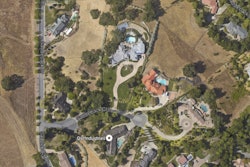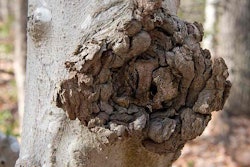 Beekeepers were not alerted to the aerial spraying beforehand, which resulted in the mass die-off.
Beekeepers were not alerted to the aerial spraying beforehand, which resulted in the mass die-off.The precautionary measures that Dorchester County in South Carolina took against mosquitoes resulted in catastrophic casualties among honeybees there on Sunday.
After the county received word from the Department of Health and Environmental Control about four confirmed travel-related cases of Zika virus in Summerville on Friday, it announced its plans to conduct an aerial spray on Sunday between 6:30 a.m. and 8:30 a.m.
By Sunday afternoon, beekeepers discovered they had lost millions of bees due to acute pesticide poisoning.
Dorchester County had sprayed Naled, an insecticide used to control adult mosquitoes that does not pose a threat to people but is highly toxic to bees. It was the first time the county has conducted an aerial spray with a plane and it had failed to notify the registered beekeepers prior to the spraying.
Normally, when the county sprays, it notifies registered beekeepers and uses a truck that drives from 9 p.m. to 5 a.m. on weekdays.
Juanita Stanley, co-owner of Flowertown Bee Farm and Supply, lost 46 hives and more than 2 million bees. She was unaware of the spraying until a fellow beekeeper, Andrew Macke, told her to check after he lost his two hives.
“I was upset, but once I saw this – and she’s lost her livelihood – I’m just a byproduct of a terrible situation,” Macke told Live 5 News.
Stanley had moved to Summerville last November to pursue a beekeeping business. The art of apiculture has been in her family for more than 100 years and now it will take time to recover from her loss.
“All my equipment is contaminated, my honey is contaminated, my cone is contaminated, I’m totally shut down here,” she said.
The county has apologized to the beekeepers who have lost their hives, and went on to say that notice was given “not less than 24 hours” in keeping with the South Carolina Pesticide Control Act.
“Dorchester County is aware that some beekeepers in the area that was sprayed on Sunday lost their beehives,” County Administrator Jason Ward told The Post and Courier. “I am not pleased that so many bees were killed.”
No additional aerial sprayings are planned at this time and prior to any other sprayings, the county says it will give three to five days’ notice.
It is unknown whether any compensation will be provided to cover the beekeepers’ losses. Dorchester County has asked for those affected by the spraying to contact the county.
According to North Carolina State University, the best time for mosquito sprays is near dusk, as this is when adult mosquitoes are most active and it allows the pesticide to decompose before honeybees become active the next day. Ground-based applications are preferred because they limit the amount of drifting that can occur with the spray.
Beekeepers can protect their hives from mosquito spray by covering the hives in wet burlap or other breathable fabric. The dampness keeps the hive from overheating while keeping the bees contained.
The Clemson University Department of Pesticide Regulation is investigating the incident.









